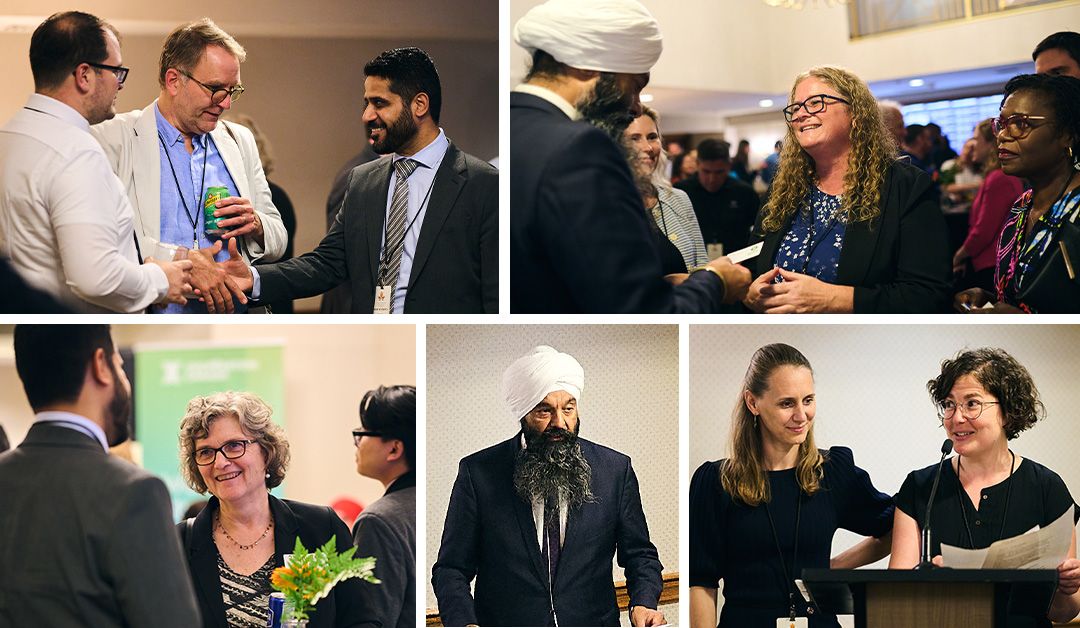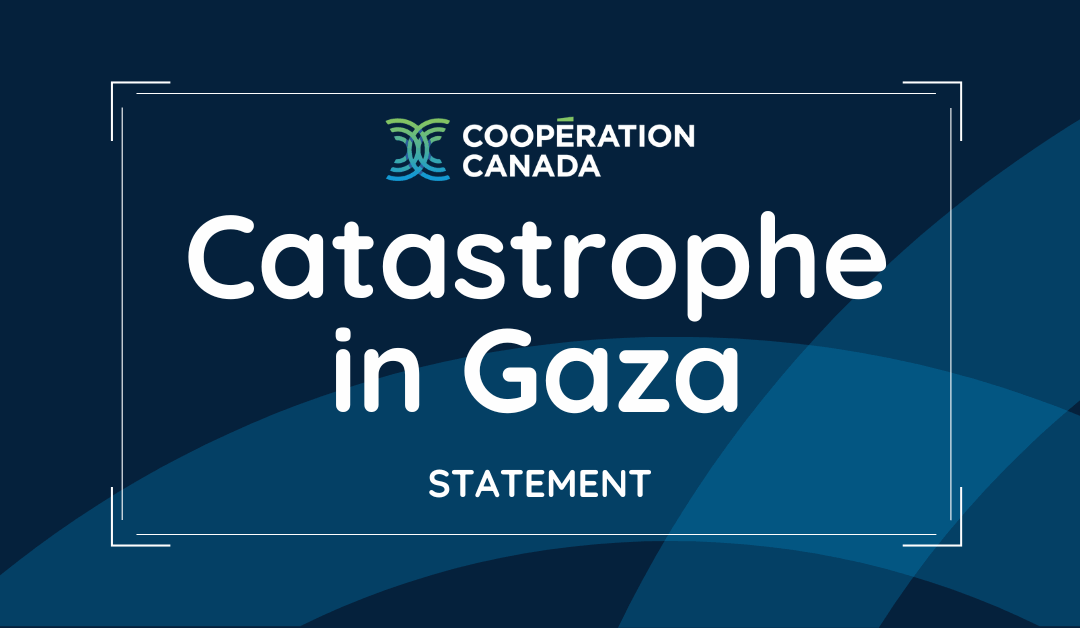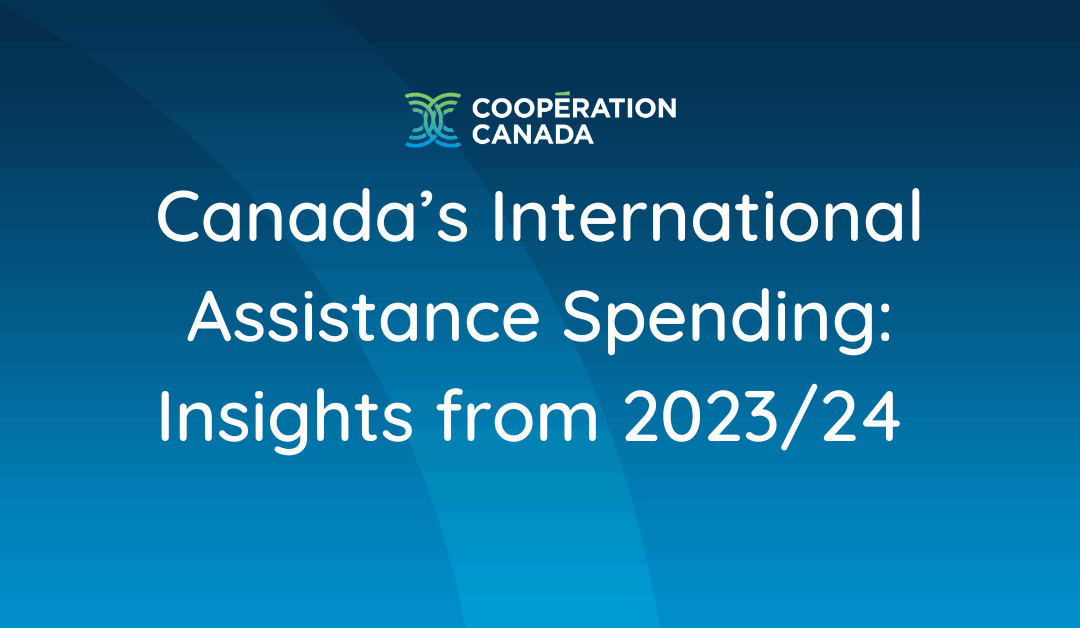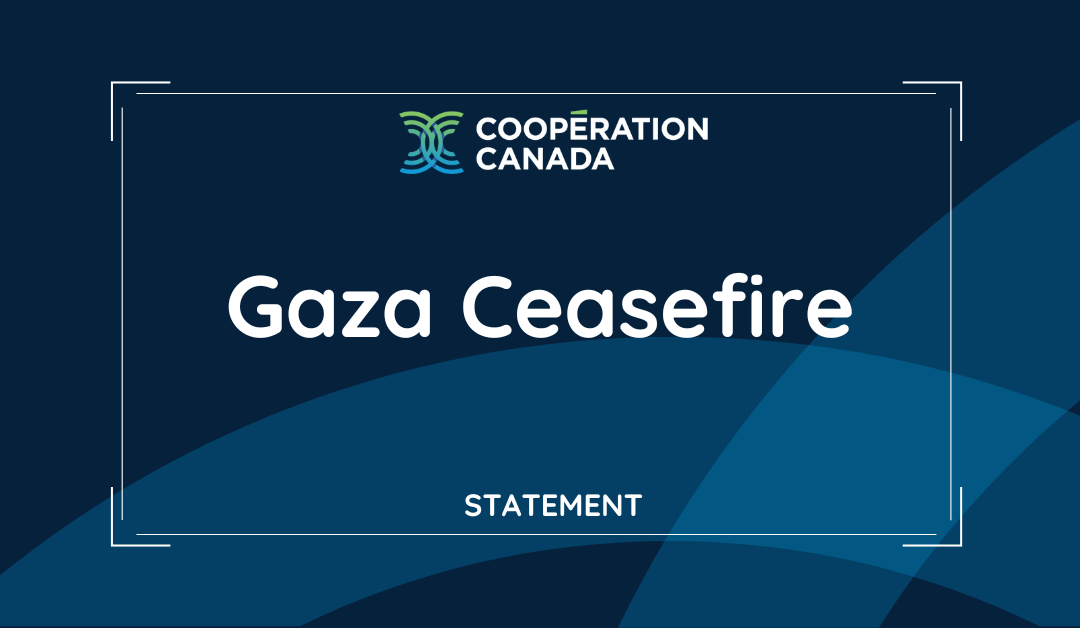Global Affairs Canada’s 2023–2024 Statistical Report on International Assistance, alongside preliminary data from the OECD Development Assistance Committee (DAC), offers fresh insights into Canada’s aid landscape. While the two datasets are not directly comparable due to different time frames, together they help paint a broader picture of trends in Canada’s international assistance, building on the Aid Trends highlights released by Cooperation Canada and AidWatch Canada in January 2025.
Canada reported total international assistance of $12.3 billion in 2023/24, of which $10.1 billion qualifies as Official Development Assistance (ODA). This represents a significant decline of almost a quarter of Canadian international assistance compared to 2022/23, but still significantly above pre-pandemic levels, taking inflation into account.
The major departments disbursing Canada’s international assistance were:
- $6 billion by Global Affairs Canada
- $2.6 billion by Immigration, Refugees and Citizenship Canada
- $2.6 billion by Department of Finance of Canada (including a $2 billion loan to Ukraine, about half of which is ODA-eligible)
- $650 million was allocated to capitalize FinDev Canada
In-Canada Spending Reaches 30% of Total Aid
In 2023/24, 30% of Canada’s international assistance was spent domestically, primarily on refugee support during their first year in Canada, as well as administrative costs. In-donor refugee costs rose by 20% in a single year and by 150% compared to 2019/20. This upward trend contrasts with other DAC donors, many of whom are reducing this type of spending in 2024.
ODA spent within Canada now exceeds, by 25%, the total assistance provided to Sub-Saharan Africa. While such domestic spending is permitted under OECD rules, it reduces the share of funding reaching lower-income countries and detracts from ODA’s core purpose, poverty alleviation and addressing inequalities in the Global South.
In addition to rising domestic expenditures, a significant portion of Canadian aid continues to be directed to Ukraine. In 2022/23, Ukraine became the largest single recipient of Canadian ODA in history and is likely to continue to be a major portion of its international assistance as reconstruction efforts will be undertaken.
When combined, in-Canada spending and aid to Ukraine accounted for 45% of Canada’s total ODA in 2023/24, leaving just 55%, or $5.6 billion, available for all other countries and priorities. For comparison, this figure was 76% in 2019/20. Other top recipients of Canadian international assistance, trailing far behind Ukraine, include Ethiopia, Haiti, South Africa, and Bangladesh.
As aid budgets shrink globally, the growing diversion of Canada’s ODA to domestic priorities undermines the effectiveness of Canada’s development and humanitarian efforts, which are essential to addressing the root causes of insecurity and displacement. Supporting refugees in Canada is vital, but it must complement, not replace, Canada’s commitments to the Global South.
Humanitarian Funding
Canada has consistently stepped up as a global humanitarian donor, often playing a critical leadership role. In 2023/24, it provided $803 million in humanitarian assistance. The Liberal Party, in its electoral platform, pledged to maintain a minimum of $800 million annually, reaffirming its commitment to global crisis response. However, this recent figure is a big drop from 2022/23, at $1.265 billion, and is the lowest since 2015/16 ($698 million, or $892 million in 2025 dollars), marking the reversal of a trend to increase humanitarian assistance.
ODA Decline Among Donor Countries
Preliminary OECD-DAC data for calendar year 2024 shows a notable shift in the global aid landscape, as total ODA from DAC member countries declined for the first time in six years. Overall, global ODA totaling USD 212.1B represents a 7.1% drop in real terms compared to 2023.
Canada contributed 0.34% of its GNI (compared to the DAC average of 0.33%), ranking 15th in relative terms. In absolute terms, however, it stood in 7th place. This is consistent with Canada’s placement from the last few years.
For more in-depth analysis of Canadian aid trends, please consult the highlights of the 2024 Canadian Aid Trends or full briefing notes, and the 2023 Canadian Aid Trends report.






